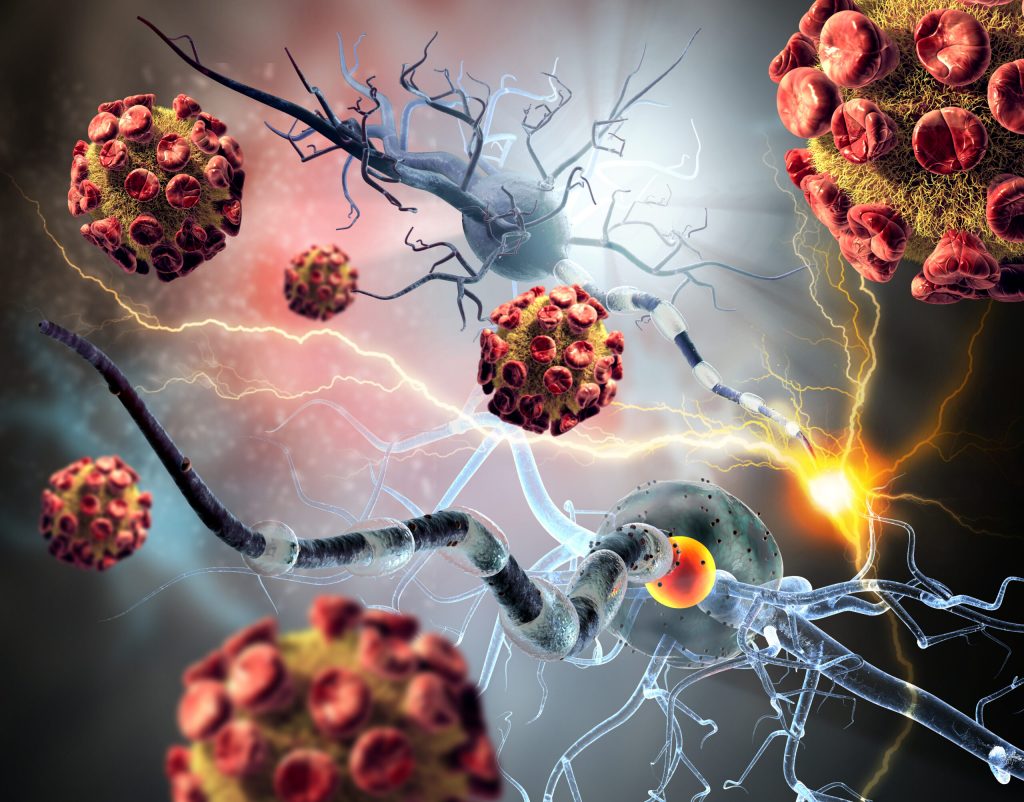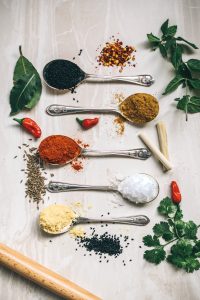
The AIP diet, short for Autoimmune paleo/protocol diet is recommended to patients who are suffering from one of the many autoimmune conditions.
The AIP diet is linked to reducing gut inflammation, which can be the route of autoimmune conditions, as well as most major disease pathologies. By treating inflammation using the AIP through a food-based approach, patients often resolve the health of their gut which can reduce and reverse many of the symptoms associated with autoimmune. Not only is gut health linked to autoimmune conditions, but an altered or damaged gut and an altered microbiome have shown to influence many other chronic conditions from depression to cognitive decline.
A Functional Medicine and nutrition approach can help you get to the root of your ill-health, reduce your symptoms and support your journey back to a healthy life.
How does an altered gut lead to an autoimmune condition?
A healthy immune system is designed to produce antibodies that attack foreign or harmful cells in your body. However, in people with autoimmune disorders such as rheumatoid arthritis, lupus, IBD and T1D, the immune system tends to produce antibodies that attack the bodies own cells.
Research suggests that damage to the gut lining can lead to increased intestinal permeability, also known as “leaky gut”, which can trigger the development of autoimmune diseases. Once proteins can enter the bloodstream through the small tears in the gut lining, the immune system identifies these particles as foreign to the body and can attack these proteins which can be anywhere in the body where there is a potential underlying weakness.
There are certain foods, such as gluten, that have shown to increase the permeability of the gut which can increase the likelihood of protein making it through into the bloodstream and causing a leaky gut. This sets off a type of cascade increasing food intolerances, driving immune responses leading to autoimmune conditions.
The Autoimmune Protocol diet.
As mentioned, the Autoimmune Protocol diet (AIP diet) has purported to reduce pain, inflammation and reduce symptoms with autoimmune conditions through its healing action on the gut and by removing foods that can be potentially problematic and cause irritation, intolerances and inflammation.
The Autoimmune Protocol diet (AIP Diet) is purported to reduce inflammation, pain, and other symptoms experienced by people with autoimmune conditions by healing their leaky gut and removing potentially problematic ingredients from their diet.
Although the AIP diet is one of the most important aspects of recovery for autoimmune patients, it will generally need the guidance of a skilled practitioner to put the disease into full remission and heal the damaged tissues. Ongoing treatment and support is required to assist with targeted supplements, nutrition and lifestyle choices may be necessary to maintain the body’s optimal functioning.
Our approach at the London Centre for Functional Medicine is to assess the health of our patients, remove infections, hormonal imbalances, assess gut health, look for excess toxicity and rebalance the body allowing the body to heal and stop the autoimmune process.
The basis of the AIP diet.
The AIP diet is an extension of the paleo diet, however, a lot stricter in some of the foods to be avoided. In its nature, it’s a very simplified version of a whole foods diet which has shown to minimize triggering any inflammation, dysbiosis and food intolerances prevalent in autoimmune conditions.
The elimination phase.
The elimination phase involves the removal of foods and medications believed to cause gut inflammation, imbalances between levels of good and bad bacteria in the gut, or an immune response.
The length of the elimination phase of the diet varies, as it’s typically maintained until a person feels a noticeable reduction in symptoms. On average, most people maintain this phase for 30–90 days, but some may notice improvements as early as within the first three weeks.
Foods to avoid.
The focus of the diet for the initial elimination phase of food groups includes
Dairy – This includes eggs, goats and sheep’s milk in addition to normal dairy.
Refined vegetable/processed and industrial seeds oils e.g. canola, safflower, soy and sunflower oils. These oils are ubiquitous in processed foods and are in most households as the primary form of cooking oil which is no wonder given how cheap they are. Once clients remove these oils or heavily reduce oils, this will go a long way to restoring health.
Nuts and seeds – Excessive buts and seeds can inflammatory for the gut lining and are a common food allergen.
Sugars and sweeteners – including natural ones like honey, although a little raw honey is tolerable for most
Corn – The protein in corn is similar enough to that in wheat and the body can identify this as a wheat protein.
Nightshades – Common nightshade vegtables include eggplant, peppers, tomatoes, white potatoes. Sauces will include any hot pepper sauces. Nightshade contains compounds that irritate the gut lining that include lectins.
Nightshade-based spices – These include paprika cayenne, chilli powder, paprika and red pepper
Grains, beans and legumes – including products made from peanuts and soy, which are legumes. The issue with both Grains and legumes are high in proteins called lectins which have shown to cause a leaky gut.
Alcohol – Alcohol is essentially liquid sugar and cause inflammation and also feed any gut infections such as SIBO, parasites, H Pylori and Candida.
Hidden sources of gluten – Always read the labels as gluten is hidden in many foods and additives and even personal care products.
NSAIDs – Non-steroidal anti-inflammatory drugs such as aspirin and paracetamol inflame the gut so avoid unless necessary.
Artificial sweeteners – Emulsifiers, thickeners, and other food additives: guar gum, carrageenan, xanthan gum and other additives.
In addition to avoiding foods, the diet recommends the preparation and consumption of nutrient-dense foods, fermented foods, bone broth while also addressing lifestyle factors including stress reduction, sleep hygiene and exercise.
What can I eat?
Organic vegetables are free from pesticides, fungicides and chemicals that will add to the toxin load and affect the immune system.
Quality meats – Try and include organ meats and offal. If possible look at grass-fed and finished meat as your first choice, organic as the second choice and free-range as your third choice. If you do eat liver, try and make sure its from young, grass fed animals so there is less toxins coming from the liver.
Glycine-rich foods – These Include foods containing tissue, organ meat and skin.
Bone broth – Bone broth is full of gelatin which can bind to water in your digestive tract which in turn help food through your gut more easily. Gelatin also contains glutamine which is an amino acid and one of the key nutrients in building the gut mucosa barrier.
Fish and shellfish – AIm at buying fish that are caught in the sea rather than farmed fish which can have wheat and antibiotics as their feed. Smaller oilier fish will be more beneficial as the omega 3 fatty acids within the fish will beneficial to the gut. Look at the SMASH fish which include Sardines, anchovy, salmon, and herring.
Probiotic and fermented foods – Fermented foods and probiotic foods have been used for centuries and can bring benefits to the gut by increasing the good bacteria in our gut which can have multiple benefits. These foods include kimchi, fermented foods, kefir (coconut and water kefir are best). You can make your own fermented foods quite easily and use a number of different ingredients including beetroot, cabbage and carrot, ginger and garlic.
Low glycaemic organic fruits – Eat fruits lower in sugar and eat them with fat, fibre, or protein to slow the uptake of sugar.
Quality fats – Choose pasture-raised, grass-fed animal fats, with quality oils such as avocado oil, coconut and extra virgin olive which can affect the membrane health of all our cells.
Herbs and spices – Avoid nightshade spices but include liberally rosemary, sage, saffron, sea salt, thyme, turmeric basil, cilantro, cinnamon, coriander, clove, garlic, ginger, horseradish, lemongrass, mace, mint, oregano, parsley.
Effects of the AIP diet
Blood sugar balance: One of the main issues with the modern-day diet is fluctuations in blood sugar levels which can have a negative impact on our health by causing hormonal imbalances, immune flare-ups, inflammation and gut imbalances through dysbiosis (more bad bacteria than good bacteria). The autoimmune diet gives is designed to eat like our ancestors which is give us a wholefood, nutrient-dense diet to support healthy blood sugar levels.
Immune system regulation – With any type of inflammation coming from your diet and lifestyle, this can lead to a cascade of negative impacts within the body which can involve absorption issues leading to nutrient deficiencies, blood sugar imbalances, leaky gut, an altered microbiome, hormonal imbalances which can all leady to a dysregulated immune system. The autoimmune diet protocol looks to stop all these potential triggers causing the autoimmune response and thereby improving immune function by lowering overall inflammation.
The AIP diet consists of two main phases: you eliminate foods that are known to drive inflammation and resulting symptoms, and then you reintroduce foods methodically to rule out reactivity.
Reintroduction Phase
The reintroduction phase can be different timings for many as each individual will respond differently to the elimination phase with factors affecting it ranging from stress, compliance and how severe the disease in the first place. Once you see a good reduction of symptoms and an improvement in health you can slowly start the reintroduction phase. Remember to go low and slow so as you give your body time to adapt and you doing end up suffering a flare-up. A new food should be introduced one at a time every 4 days. The goal here is to see which foods are causing symptoms and which foods are giving no reactions. With the foods, you are reacting to continue to avoid them for another 4 to 6 weeks and bring them back in again seeing how you reacting each time. The more foods you can bring into your diet, the better diversity you will have which will feed the microbiome. It maybe it takes up to 6 months to bring a certain food back in that you have been intolerant to. Certain foods like gluten arent advisable given the research on gluten and its impact on the gut lining. This doesn’t mean you can never eat gluten, but it should be avoided until you are fully in remission and then eaten very very sparingly.
How long do I need to follow the AIP?
Sticking to the AIP diet for a minimum of 30 days gives your body a chance to begin calming the autoimmune response, healing the gut lining, reducing inflammation and repairing damaged tissues that were subject to the autoimmune attack. Many follow the AIP diet for 30 days to a few months before they start reintroducing foods, depending on the severity of the condition, however, 3 months is a reasonable time period for the body to rebalance and give the body a chance to start its healing process.
How we can help?
Achieving optimal nutrition is key to preventing and reversing autoimmunity and other chronic conditions. AIP isn’t necessarily easy – it definitely takes commitment, but if you have an autoimmune condition and you want to get on top of it, then you’re going to need to follow an AIP diet while treating other imbalances.
Combined with good sleep habits, managing stress levels and exercise, our Functional Medicine health practitioners can support you to figure out where your food sensitivities lay and what foods will help you to live well.
We use Advanced Testing to fully assess our patient’s biochemistry, removing key blocks that may be preventing recovery, balancing important biochemical pathways such as methylation and detoxification, removing underlying infections where viruses playing an underappreciated and under-tested element to any autoimmune conditions and repairing any damage to the gut.






